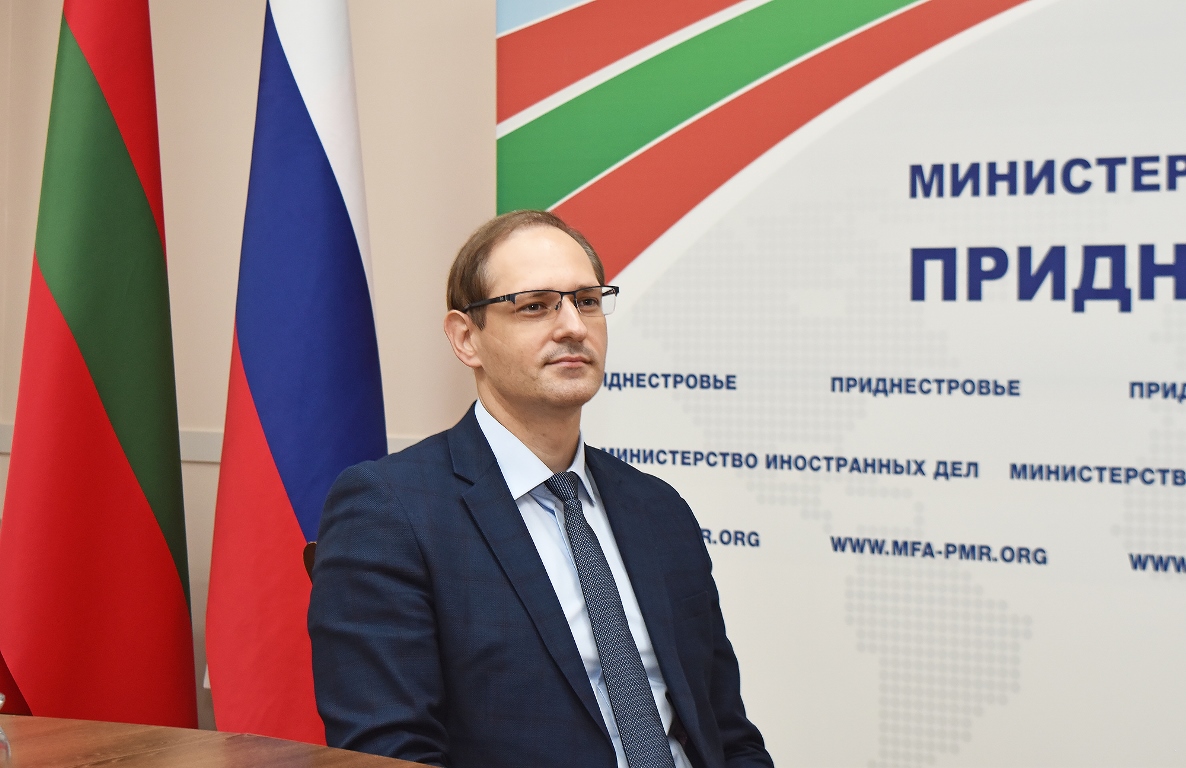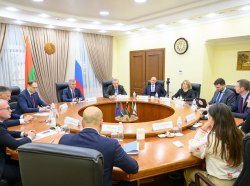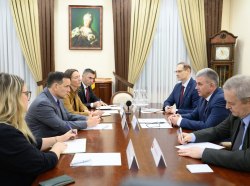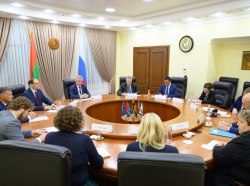Tiraspol, November 30. /Novosti Pridnestrovya/. The Minister of Foreign Affairs of the PMR Vitaly Ignatiev talked with the correspondent of the Hokkaido Shimbun newspaper Norisada Takafumi. The journalist was interested in a wide range of issues related to the Moldovan-Pridnestrovian negotiation process, the cooperation of Pridnestrovie with the Russian Federation and other countries, as well as the situation caused by the banking, financial, and motor transport blockade of Pridnestrovie.
Speaking about the settlement of relations between Pridnestrovie and Moldova, Vitaly Ignatiev stated that the negotiations were in a state of degradation at the current stage. The systemic deterioration of the situation in the negotiation process began 1.5-2 years before the coming to power of the current leadership of Moldova. The Minister recalled the deliberate failure of Chisinau to fulfill the complex package of agreements with Pridnestrovie signed in 2017-2018, and the failure of the political representative of the Republic of Moldova to adopt the final statement of the Bratislava meeting in the 5 + 2 format at the end of 2019.
“Today, any activity of the Moldovan side, which is associated with decision-making and a responsible approach, is absent. Chisinau deliberately delays the appointment of its authorized representative in the negotiation process but makes provocative statements regarding Pridnestrovie at every opportunity. We regard this approach as a form of destruction of the negotiation mechanism. Chisinau does not do it in a direct and open manner, but, referring to legal technicalities, it refuses to have a meaningful dialogue,” the Head of the Foreign Ministry said.
Answering a correspondent's question about the attitude of Pridnestrovians to the politics of the so-called. “reintegration” by the Republic of Moldova, Vitaly Ignatiev spoke in detail about the political, legal, and referendum grounds for the independence of the Pridnestrovian Moldavian Republic. He noted that the adoption by the Moldovan SSR Parliament of the Declaration of Sovereignty of June 23, 1990, strengthened the legitimate grounds for the approval of the statehood of Moldova and Pridnestrovie as two equal successors of the MSSR, which previously existed separately.
“Pridnestrovie has never been a part of Bessarabia or modern Moldova. Accordingly, since the Soviet Union Republic of the MSSR is recognized as illegal by the highest legislative body of Moldova, then there is not and cannot be any grounds for the "reunification" of the absent unity. The popular thesis of "reintegration" is phantom in nature. The sooner the international community stops relaying it, the sooner Chisinau will abandon its unrealizable, inflated requests and mature for a realistic scenario for resolving the conflict. This option could be the conclusion between the two republics of a comprehensive agreement on peace, friendship, and cooperation,” Vitaly Ignatiev summed up.
Answering the question about the role of Russia, the Pridnestrovian diplomat listed practical aspects indicating that the Russian Federation was a key participant in the peacekeeping operation on the Dniester, a reliable and responsible mediator in the settlement process.
“In a view of the current protracted crisis in the dialogue, it might not be superfluous for Russia to offer its platform for holding meetings in the 5 + 2 format, since the OSCE fails to cope with the task of convening and organizing the next round of the meeting for the second consecutive year. And all this comes against the backdrop of a steadily degrading situation. Earlier, when the dialogue was in an intensive phase, Russia's assistance was of great practical importance, as, for example, during the dismantling of the faulted cableway (funicular) in Rybnitsa and Rezina,” the Minister said.
Referring to the current state of relations with Ukraine, the Head of the Foreign Ministry emphasized that Pridnestrovie was closely linked with its eastern neighbor by historical, trade, economic, cultural, and humanitarian relations, which will basically persist, despite the emerging volatility in the political environment. Ukraine is one of the three official mediators in the international negotiation process, its military observers have been participating in the peacekeeping operation side by side with Russian, Pridnestrovian, and Moldovan peacekeepers for many years, and this experience can literally be called unique and constructive.
“At the same time, it should be recognized that the increased susceptibility of Kyiv to the political ambitions of Chisinau towards Pridnestrovie creates objective difficulties for the settlement, complicating the already difficult dialogue, forcing the residents of Pridnestrovie to experience restrictions and deprivations, including almost one hundred thousand Ukrainian citizens permanently residing in our republic. A vivid example is a ban on entry into the Ukrainian territory of all categories of Pridnestrovian vehicles, including ambulances, introduced from September 1. This is largely an emotional decision, yet we remain engaged in a continued dialogue with our Ukrainian colleagues. Hopefully, we can convince them to act more constructively. People should not be hostages of political ambitions," the PMR Foreign Minister concluded.









